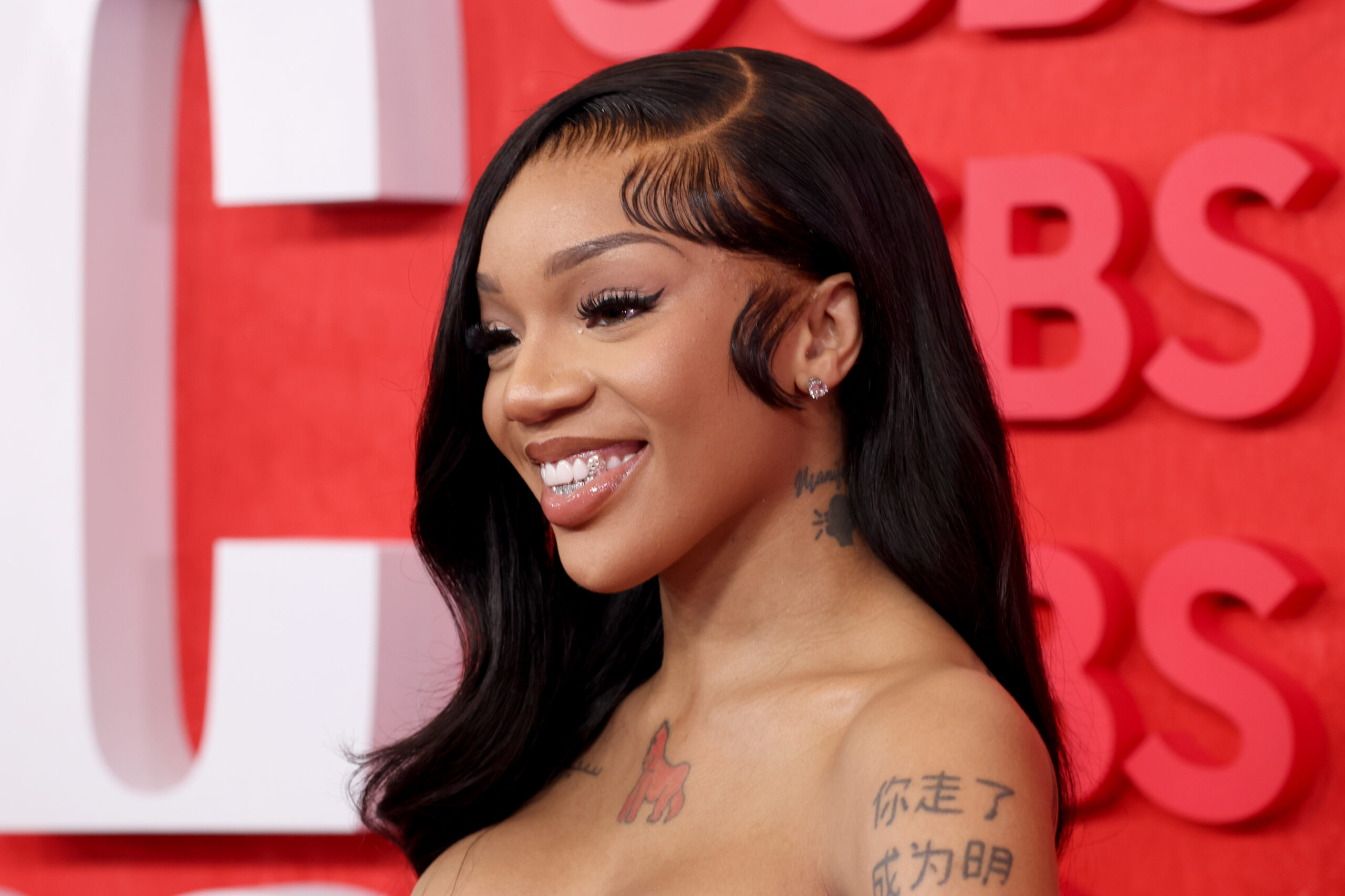The internet doesn’t waste time when it smells even a whiff of controversy, especially when it involves a Black woman changing her appearance. This week, rapper GloRilla, born Gloria Hallelujah Woods, found herself at the center of that swirling social media storm after fans began speculating that she had undergone a nose job. The conversation started when she posted a series of glamorous selfies with a noticeably slimmer nose. Then she sent out a tweet that read “AND DID 😏,” seemingly confirming the nose job. That was all it took for the comments to fly.
Some followers applauded her glow-up and confidence, while others accused her of giving in to European beauty standards or “abandoning” her Black features. There were memes and TikTokers dissecting before-and-after photos like forensic experts. And once again, we found ourselves in a familiar cultural moment, where a Black woman makes a personal choice about her body, and the world treats it like public property.
But here’s the real question: why does a Black woman’s choice about her own face inspire so much outrage?
The Audacity of Autonomy
Black women are allowed to want things. They are allowed to enhance, alter, adorn, and reclaim their bodies however they see fit. Whether it’s natural hair, a lace front wig, lip fillers, or yes, even a nose job. Those choices are theirs to make, free from public policing.
Historically, Black women’s bodies have been subject to scrutiny, exploitation, and control. That legacy hasn’t vanished, it’s just taken on digital form. Twitter threads and Instagram comments may seem harmless, but they often echo the same message: “Your body doesn’t belong to you. It belongs to our cultural expectations.”
When GloRilla rose to fame, she was praised for embracing her “natural” look, especially her strong Southern accent, distinctive voice, and unapologetic confidence. She didn’t fit the cookie-cutter image of mainstream femininity, and that’s what made her electric. So when she (possibly) altered her nose, some fans felt betrayed, as if she owed it to us to stay “authentically herself.”
But what’s more authentic than choosing how you want to feel in your own skin?
It’s Not Always About Assimilation
Critics were quick to label GloRilla’s alleged nose job as an attempt to assimilate into European beauty standards. This is a common refrain in conversations around Black women and cosmetic surgery, especially nose reshaping, which has long been stigmatized in our community. But that assumption flattens the real complexity behind these decisions.
Yes, we live in a society that favors Eurocentric features. That influence is real, and we should interrogate it. But not every Black woman who chooses to undergo a procedure is doing so out of self-hate or assimilation. Sometimes, it’s about symmetry or about fixing a bump or an injury. Sometimes, it’s just about doing what makes you feel good.
We don’t demand the same explanations from white celebrities who get nose jobs, lip fillers, or chin implants. They’re applauded for “perfecting” their features, while Black women are accused of betrayal. That double standard is not only unfair, it’s rooted in a long history of denying Black women agency over their own image.
There is also an ironic twist to these critiques. When Black women choose to keep their “Black” features, such as broad noses, full lips, deep skin, they are often marginalized and mocked. Black women can’t win, and they shouldn’t have to play a game designed to keep them losing.
Loving Yourself Doesn’t Mean Staying the Same
A common argument you’ll hear online is that altering your appearance is incompatible with self-love. But self-love is not static, it’s fluid, evolving, and personal. Loving yourself might look like affirming your natural features. It might also look like getting Invisalign, laser treatments, or a rhinoplasty.
There’s power in saying, “This is who I am and this is how I choose to present myself.”
That’s true whether you wear a silk press or rock a TWA; whether you contour your nose or leave it untouched.
GloRilla has never presented herself as anyone’s perfect role model. Her whole brand is about rawness, confidence, and doing what feels right for her. So it tracks that she wouldn’t apologize for a decision that, if true, she made for herself.
And why should she?
Let Black Women Breathe
The conversation around GloRilla’s (alleged) nose job reveals a deeper issue: we’re still uncomfortable letting Black women be fully autonomous. We want them to be confident, but only if that confidence looks a certain way. We want them to be natural, but only if it aligns with what we think “natural” should mean.
The truth is, Black women are complex. We contain multitudes. Therefore, we have every right to make personal, nuanced, and even contradictory decisions about our own bodies, without needing to explain or defend them to anyone.
Let’s get comfortable with that. Let’s get uncomfortable with our own internalized biases. Most importantly, let’s stop assuming that liberation looks the same for everyone.
Because at the end of the day, if a Black woman wants a nose job, who are we to criticize her?
